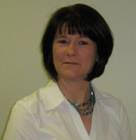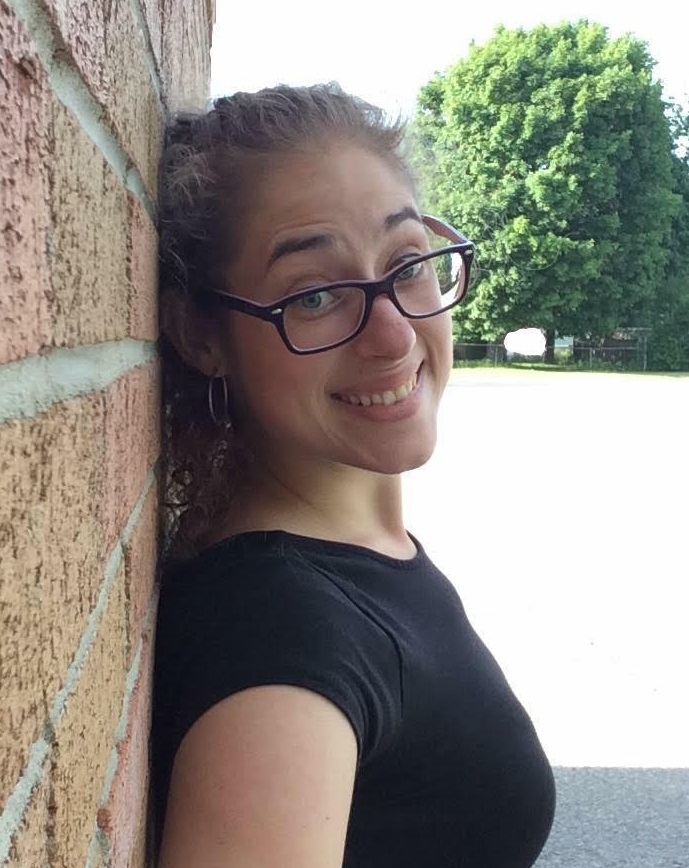- Details
- Published: 24 January 2020
Welcome to first installment of our Anniversary blog series!
To kick things off, we asked two current Board members, both of them from Newfoundland, to buddy up and compare notes on their experience volunteering with CNPEA, what they see as the path to improved elder abuse prevention and healthier communities, and what the future could look like at CNPEA. This conversation has been edited for conciseness. Kelly Heisz is the Executive Director of SeniorsNL. She has been in the non profit sector for 25 years, focusing on community engagement and capacity-building. While born in Nova Scotia, Kelly has spent most of her life in Newfoundland. She is a long-time Board member of CNPEA and was involved in the development and implementation of the Knowledge-Sharing Hub.
Kelly Heisz is the Executive Director of SeniorsNL. She has been in the non profit sector for 25 years, focusing on community engagement and capacity-building. While born in Nova Scotia, Kelly has spent most of her life in Newfoundland. She is a long-time Board member of CNPEA and was involved in the development and implementation of the Knowledge-Sharing Hub.
 Chelsea Skanes is originally from St John's and currently works as a housing systems navigator for a homeless prevention program in London, Ontario. She holds a BSW from Memorial University of Newfoundland and Labrador and a Certificate in Gerontology from Fanshawe College and has focused on housing and homelessness, research assistance, and resource development. Chelsea joined the CNPEA Board in September 2019.
Chelsea Skanes is originally from St John's and currently works as a housing systems navigator for a homeless prevention program in London, Ontario. She holds a BSW from Memorial University of Newfoundland and Labrador and a Certificate in Gerontology from Fanshawe College and has focused on housing and homelessness, research assistance, and resource development. Chelsea joined the CNPEA Board in September 2019.
All roads lead to CNPEA
Chelsea Skanes: So, Kelly, what initiated your interest in working with older adults?
Kelly Heisz: I applied for my job at the Seniors Resource Centre of Newfoundland and Labrador (now SeniorsNL) because working with older adults and those who support them is really important to build healthier communities. Elder Abuse, in particular, is an issue that affects the health of individuals and hence of a community and it is so underreported. So, it is important to empower them and the people around them to take action. I came on to CNPEA as a result of my job. When I got hired as the Executive Director for SeniorsNL, my duties included being on a number of committees. CNPEA was relatively new at the time. What about you? What interested you in applying to join the Board of CNPEA? how did you hear about it?
Chelsea Skanes: It was through one of the older adults Facebook groups I follow. I saw the call for nominations, read a bit about what CNPEA was about and I thought “I have some knowledge that could possibly be of use”. I have always been really interested in working with older adults. I grew up really close to my grandparents and in my church, and I really wanted to help build a better, healthier community, that older adults could thrive in. I still have a great grandmother who is 101 years old. Watching how independent she is and knowing that there's such a variety to ageing made me want to get involved in senior services and generally broaden my knowledge and networks so I can help take care of older adults. We are an aging population and I think it's important to have people who have that skill set.
Intergenerational work and intersectionality at the heart of elder abuse prevention
KH: It’s so interesting that you talk about your experience with your grandparents. Some younger people do not have a relationship with older adults or even with their grandparents, because they live far away. This whole intergenerational thing -understanding and seeing vibrant seniors, having them in your life- it adds that missing perspective, doesn't it?
CS: Absolutely and I think that intergenerational component is key to the Newfoundland society in general. There are a lot of households where grandparents still live with younger generations. I feel like Newfoundland does a really good job of honoring older people and their stories.
KH: I think it certainly does shape our ability to respect individuals and value them, which in turn impacts these people's experiences. Older adults can't be clumped into one category, they are not a homogeneous group. Elder abuse does target the most vulnerable so we need to empower people who are able to stand up to it and report, and support those who are vulnerable or cannot speak for themselves (for example those living with dementia or cognitive ability disabilities).
CS: Absolutely, I have worked a lot with populations that have been really disempowered. I've worked with homeless older adults, with LGBTQ older adults, people who feel like they don't really have the ability to say, “I don't feel like I'm being treated fairly”. So being able to empower these folks to have a voice and encourage others to ask for equality and advocate for everybody, is really important.
KH: I think this is a really important point you are bringing up. Older adults are so diverse (various abilities, from different cultures, with different life experiences), some of them with intersecting vulnerabilities. I'm really glad that you bring that perspective, so we don't forget anyone in our work.
CS: I really hope that I can help bring some of that to the Board and to the Network because these are issues that are dear to my heart.
A growing network
KH: I think we’re at a point where CNPEA has the opportunity to really focus on this diversity of experiences and corresponding approaches. When I first started, the Network existed as an opportunity to check in across the country: “What is happening in Newfoundland? in British Columbia? in the Northwest Territories?”. Once CNPEA got funding and developed the Hub, it took things further and really started coming together. I think CNPEA certainly evolved and has grown quite a lot in terms of membership, leadership, identity.
When I first got involved in CNPEA, many of the founders were still on the board, Elizabeth Podnieks, Charmaine Spencer, Allison Leaney, to name a few. They paved the way to building CNPEA. As an organization we must evolve and remain relevant yet keep the core values: to raise awareness of elder abuse and to share prevention and response strategies, so people know what to do and who to reach out to, and so it is not a silent issue anymore.
It can be hard to do all this, as a virtual working board. It’s tricky when you don't see each other face-to-face. I think our last face-to-face meeting was in 2016! It was great, sitting next to someone that you've been hearing on the phone for the past few years, and it gave us a chance to spend more time to talk and strategize. Hopefully, the two of us will get to meet. Everybody on the Board is committed to doing a lot of work, to staying present, participating and providing expertise. It’s such a team effort.
CS: I think that’s a great thing about CNPEA, it is such a supportive environment, wherever your skillset lays there's value for it. There’s so many different ways that you can get involved and that's probably one of the things that excites me the most about starting my involvement: hopefully trying to put some of my skills to use and honing new ones.
Looking to the future
KH: Sometimes we tend to work within our own region or silo and not know what’s out there, or how global the issue is. That’s why CNPEA is so useful, knowing what kind of knowledge is out there and having it at your fingertips is amazing. I know that Seniors NL really tries to emulate that. I think one of our biggest achievements, besides convening some core experts and passionate people to address elder abuse is the website itself. It’s a clearinghouse for the best content. I try to reference it all the time at my work. I want to see it go on, sharing information that can be used by people all across our country, and maybe the world as well.
CS: I am really interested to see how it will evolve. Who knows what it's going to look like within the next 20 year? I mean the world has already changed so much just since CNPEA was born, maybe an app? I hope that we keep it relevant and that CNPEA continues advocating and spearheading things.
KH: It has been great to see that different levels of government have reached out to CNPEA for comment and roundtables, it means they are seeing the value of CNPEA. As we evolve as an organization, I hope that in 20 years time, CNPEA will be a global force, with a coast to coast to coast presence, that we can become a real influencer provincially and federally and encourage individuals to take action. What do you see?
CS: I hope that we work to make things accessible to folks. There’s real value in research and academic work, but it's when you actually bring that to a wide variety of people and make it accessible to them that the real work is done. I think it's really important. I think that we do a really good job of that so far and I'd like to see that continue.
KH: I totally agree with you, we need to stay grounded to the people who are being impacted. Sometimes when you work on the higher level of things, you run the risk of forgetting the people that you're actually trying to help. We have an obligation to ensure that we reach a wide array of individuals and work with them and provide opportunities for them to participate.
CS: I think that abuse really thrives off secrecy, it is key for people to know what to do and how and to bring it into the light. That's when we can really start doing the hard work to start to eradicate it. The last 20 years have brought together people from across the country to join together. I'm really excited to see what the next 20 years bring!

















